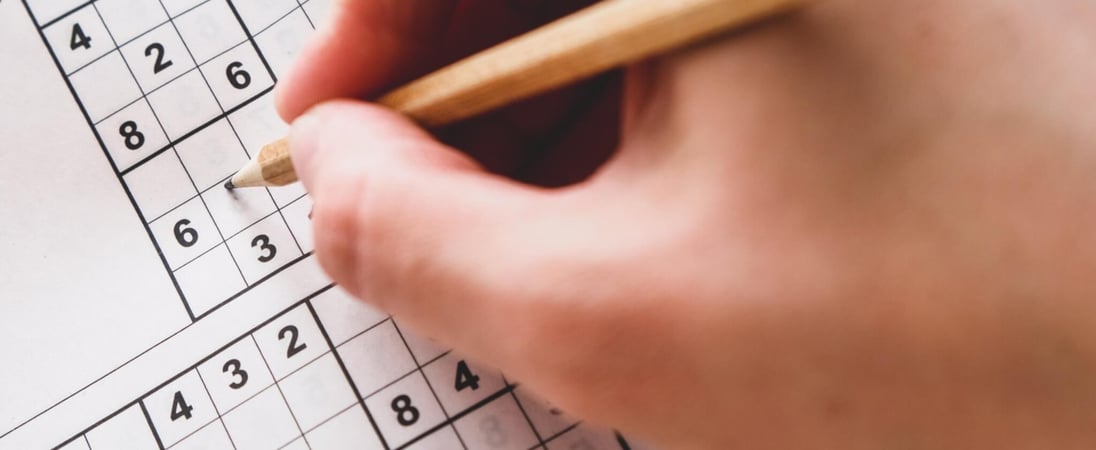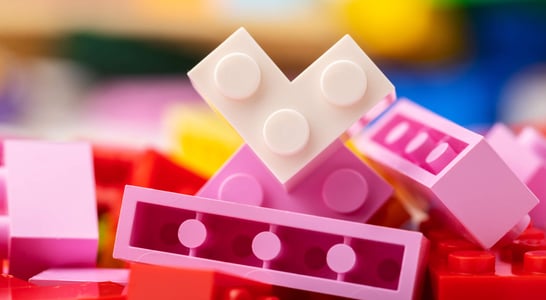
International Sudoku Day
Challenge your mind and improve your logic skills with this addictive puzzle game that has taken the world by storm!
Puzzle lovers, get ready to celebrate because it is time for International Sudoku Day!
History of International Sudoku Day
While many people believe that Sudoku is a game that has ancient roots in Asia, the game is actually a fairly modern invention. In the late 1700s, a Swiss mathematician named Leonhard Euler invented a similar game that he called Latin Squares. The difference is that the game was not subdivided into blocks of nine at the time.
Almost two hundred years later, Howard Garns, a freelance puzzle inventor from Connersville, Indiana, submitted his puzzle to an American puzzle magazine called Dell Pencil Puzzles and Word Games. The puzzle, called “Number Place”, was first published in 1979 in a book of random and various puzzles.
At the time, the puzzle didn’t really gain much traction of its own, even though it continued to be published by Dell in their puzzle collection books.
By 1984, Number Place had made its way to Japan, where the Japanese people were especially fond of it. This is probably due to the fact that crossword puzzles are very difficult in the Japanese language, but this game only required the use of numbers so it’s much simpler. Here the game was named Sudoku, pronounced “Soo-doe-koo”, meaning something along the lines of “the numbers must remain single”.
For two decades, Sudoku remained an obsession only in the Far East until the late 1990s when a traveler picked up a puzzle book while on vacation in Tokyo. A New Zealand judge named Wayne Gould saw the squares and quickly became a devoted enthusiast of filling them in.
Gould took things one step further over the next few years when he developed a computer program that would create the Sudoku puzzles automatically. The first was published in a local newspaper in the US in 2003, but it didn’t get much attention.
When Gould’s wife presented his work to the London Times and they printed a Sudoku puzzle in their newspaper in 2004, the game began to grow in popularity and become ‘viral’. Sudoku games began popping up in puzzle books while books made up entirely of Sudoku started hitting the stores.
No one can explain exactly why Sudoku has become so popular all around the world, but some people think it has to do with the human’s innate desire to find order from chaos. In addition, when a person is able to finish a Sudoku puzzle, it offers a sense of accomplishment and productivity. It makes a person feel like a winner. And they are!
In 2013, International Sudoku Day was founded by the World Puzzle Federation to pay heed to this unique, challenging and somewhat addictive game. So get ready to play and enjoy one – or many – of these little puzzles in celebration and honor of International Sudoku Day!
International Sudoku Day Timeline
1783
Swiss mathematician creates Sudoku ancestor
Called “Latin Squares”, Leonhard Euler’s game is made of symbols and numbers but is not divided into blocks of nine.[1]
1979
Sudoku is invented
The modern version of Sudoku, called “Number Place”, was invented just a few decades ago by Howard Garns, a freelance puzzlemaker from Indiana, USA.[2]
1984
Sudoku gets its name
The game makes its way to Japan and gets a new name which is short for “Sūji wa dokushin ni kagiru” which translates to “single number”[3]
1997
Sudoku makes its way back to the West
A New Zealander named Wayne Gould experiences Sudoku during his travels to Hong Kong and develops a computer program to make the puzzles over the next six years.[4]
2004
The Times of London begins publishing Sudoku
Gould’s wife, a linguistics professor in New Hampshire, USA, travels to London and gets the Times to publish one of her husband’s puzzles.[5]
How to Celebrate International Sudoku Day
International Sudoku Day is an opportunity to have fun and train the brain! Consider these ideas for ways to enjoy and celebrate the day:
Learn How to Play Sudoku
Grab a pencil and get ready to have a ton of fun! Although the numbers might seem intimidating at first, it really has nothing to do with math. The numbers are just placeholders and the game would work just as well with letters or symbols of any sort. The numbers just make it easy to be sure that every item in the column or row is filled in properly.
Sudoku is played on a grid of 81 squares, broken up into blocks of nine. The rules of the game are pretty simple. Each column, row, and block of nine must contain one of each of the numbers, without any duplicates. By using the numbers that are already placed in the grid, and the process of elimination, it’s possible to fill in the entire puzzle.
Most Sudoku puzzle books offer instructions and tips in the first few pages of the book that allow beginners to learn with ease. Also, many Sudoku books will organize the puzzles by easy, medium, and hard, to give beginners a chance to get used to the way the game is played. Some puzzles also offer hints and the answers are typically supplied at the back of the book for puzzlers who are really and truly stumped.
Gift a Sudoku Book to a Friend
Friends who know how to play Sudoku will love receiving the gift of a puzzle book in honor of International Sudoku Day. Sudoku books can be picked up at most newsstands, bookstores and even discount or dollar stores. And those who don’t know how to play? Well, they’ll probably love to learn.
Also it’s important to remember that Sudoku does not necessarily need to be a game that is played by only one person! It might even be fun to challenge a friend to a head-to-head timed Sudoku playoff. Just buy two of the same book, choose the same puzzle, set a timer and then get started. See who can finish the Sudoku game faster!
Download a Sudoku Game on a Smartphone
Enjoy the fun of playing Sudoku on the go, without the need of a pencil and eraser. Get a Sudoku App downloaded to that smartphone and get started feeling the challenge! Plus, Sudoku App games often have special features such as offering hints, playing a timed game or keeping a streak of daily games played.
Learn the Benefits of Playing Sudoku
While playing Sudoku or other brain teaser games cannot actually make a person smarter, it can keep the brain younger. Studies have shown that older people who regularly engage with Sudoku or other similar games can benefit from keeping their brains active. In fact, it may even make the brain act like one that is ten years younger!
Playing Sudoku on a regular basis may also help stave off different cognitive dysfunctions, such as dementia, Alzheimer’s disease and other brain related problems. So keep those brain cells active and play some Sudoku for good mental health!
International Sudoku Day FAQs
How do you play Sudoku?
Sudoku is played on a grid of 81 squares divided into 9 blocks. Each block, row and column may only contain one of each number 1-9. The game is played by filling in the empty squares.
How do you pronounce Sudoku?
The Japanese name Sudoku is pronounced “Soo-doe-koo”.
Is Sudoku Japanese?
Though the name is Japanese, the game was created by an American puzzle maker.[1]
Can Sudoku have multiple solutions?
A properly created Sudoku puzzle should only have one possible solution.[2]
Can Sudoku make you smarter?
Although brain games like Sudoku do not make you smarter, they may keep the brain functioning at rates up to ten years younger.[3]
Also on ...
View all holidaysNational Teddy Bear Day
Cuddly, cute, and comforting companions that always listen and never judge. These creatures are perfect for snuggles and make great gifts.
National Wienerschnitzel Day
Make your own deceptively simple Wiener Schnitzel out of pork or veal to add a delicious and wholesome new meal to your repertoire that dates back centuries.
Wonderful Weirdos Day
Dress weird, listen to weird music, watch weird movies and eat weird food to break through the monotony of life and bring some color and fun to your day.
We think you may also like...
International Thunderbirds Day
Watch the classic British puppet show Thunderbirds, or join a Thunderbirds event to geek out over this culturally influential show.
International LEGO Day
Construct creative builds with this beloved, versatile toy, enjoy the hilarious LEGO Movie or visit a LEGOLAND theme park with your family.
National Mr. Potato Head Day
Celebrating the charm of a versatile, spud-based toy, sparking creativity and timeless joy through imaginative play and customization.








